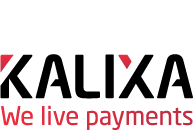The problem for merchants is that payment services today don’t meet their needs. Innovation in payment technology has long promised increased convenience and utility, but the reality has not lived up to the hype, and businesses have been exploited by an expensive and complex “value” chain for too long.
Here’s how the traditional payments value chain affects consumers and merchants:
- Cost: Multiple providers have increased the CAPEX/OPEX cost of payments. In an effort to offset these costs, merchants are passing them on to consumers who are unknowingly footing the bill without seeing the benefits. Making a payment abroad is a clear example of how consumers are stung with excessive and often hidden costs. By removing unnecessary links in the value chain, foreign exchange fees can be reduced by as much as 5%.
- Complexity: A myriad of providers creates a headache for merchants. Payment services take too long to integrate, are inflexible at a time of rapid change, and do not offer the visibility and control merchants require to run their business.
- Risk: Security is fundamental to payments. Any breach could result in serious fiscal and reputation consequences. ‘Gaps’ between technology providers compromises security and increases risk.
So, if we want to start paying less for our payments – and reduce their complexity and risk – we need to unshackle merchants, small businesses and consumers from this complex and inefficient ecosystem. We need to trim the ‘fat’ by removing the excess links in the value chain to make payments simple, seamless and secure.
And that’s where Kalixa comes in. Kalixa is here to disrupt the payments market. With products that cover virtually every area of the value chain – from issuing and acquiring to acceptance – Kalixa owns its own payments ecosystem. This means that Kalixa customers only need Kalixa, rather than a sequence of providers along the value chain.
One integration, one platform and one company: Kalixa is turning what merchants have typically seen as a cost into competitive advantage.


